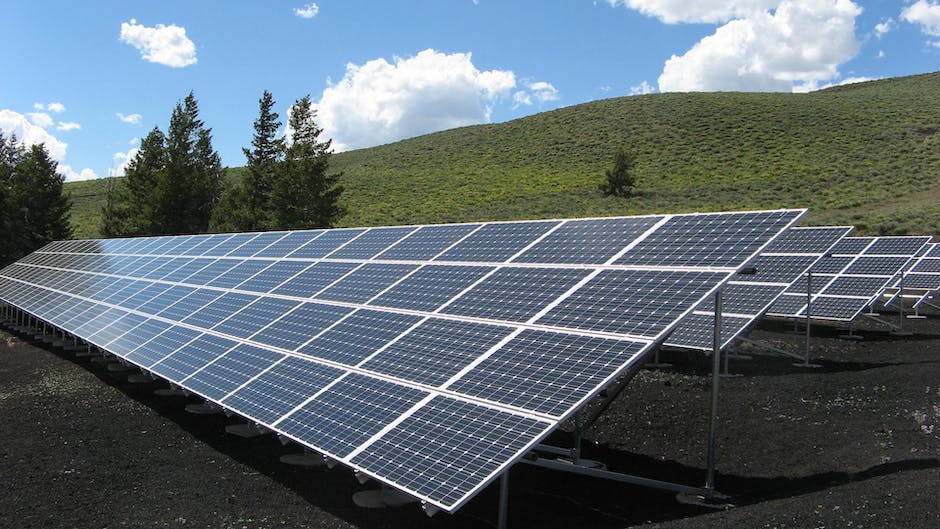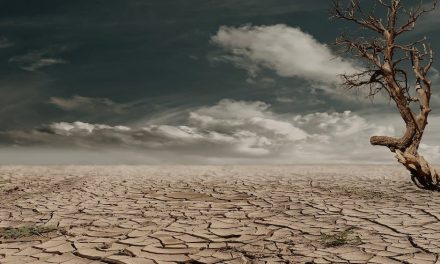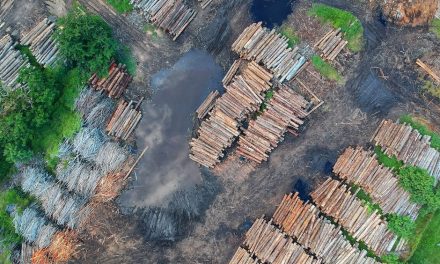Table of Contents
- Introduction
- The Role of Renewable Energy in Shaping the Arab World’s Future
- Opportunities and Challenges for Clean Energy Adoption in the Arab World
- The Economic Implications of the Clean Energy Revolution in the Arab World
- Policy and Regulatory Frameworks for Accelerating Clean Energy Transition in the Arab World
- Q&A
- Conclusion
Empowering the Arab World: Leading the Clean Energy Revolution.
Introduction
The future of the Arab world in the global clean energy revolution holds significant potential for both economic and environmental transformation. As the world increasingly shifts towards renewable energy sources, the Arab world, with its abundant solar and wind resources, has a unique opportunity to become a key player in the clean energy sector. This introduction will explore the potential benefits, challenges, and implications of the Arab world’s involvement in the global clean energy revolution.
The Role of Renewable Energy in Shaping the Arab World’s Future

The Arab world is at a crossroads. As the global clean energy revolution gains momentum, countries in the region must decide how they will participate in this transformative shift. Renewable energy has the potential to shape the future of the Arab world in profound ways, from economic diversification to environmental sustainability. This article will explore the role of renewable energy in shaping the Arab world’s future and the opportunities and challenges that lie ahead.
One of the key drivers behind the push for renewable energy in the Arab world is the need to diversify economies that have long been dependent on oil and gas. With the decline in oil prices and the urgent need to reduce greenhouse gas emissions, countries in the region are increasingly looking to renewable energy as a way to create new industries and jobs. The transition to clean energy can help reduce reliance on fossil fuels and create a more sustainable and resilient economy.
The Arab world is blessed with abundant renewable energy resources, including solar, wind, and geothermal. Solar energy, in particular, holds great promise for the region, given its high solar irradiation levels. Countries like Saudi Arabia and the United Arab Emirates have already made significant investments in solar power, with ambitious plans to become global leaders in renewable energy. By harnessing their natural resources, these countries can not only meet their own energy needs but also export clean energy to other parts of the world.
However, the transition to renewable energy is not without its challenges. One of the main obstacles is the high upfront cost of renewable energy infrastructure. While the long-term benefits of clean energy are clear, the initial investment required can be a barrier for many countries in the Arab world. Access to financing and the development of supportive policies and regulatory frameworks are crucial in overcoming this challenge and attracting private sector investments.
Another challenge is the need for skilled labor and technical expertise. The renewable energy sector requires a highly skilled workforce, from engineers and technicians to project managers and policy experts. Building the necessary human capital will require investments in education and training programs, as well as collaboration with international partners to transfer knowledge and expertise.
Furthermore, the integration of renewable energy into existing power grids poses technical challenges. The intermittent nature of solar and wind power requires the development of advanced energy storage technologies and smart grid systems to ensure a stable and reliable energy supply. Collaboration between countries in the Arab world and international partners can help address these technical challenges and foster innovation in the clean energy sector.
Despite these challenges, the future of the Arab world in the global clean energy revolution is promising. The region has the potential to become a major player in renewable energy, not only in terms of energy production but also in technology development and innovation. By embracing renewable energy, countries in the Arab world can reduce their carbon footprint, improve air quality, and contribute to global efforts to combat climate change.
In conclusion, renewable energy has the potential to shape the future of the Arab world in significant ways. The transition to clean energy can help diversify economies, create new industries and jobs, and contribute to environmental sustainability. While there are challenges to overcome, such as the high upfront costs and the need for skilled labor, the opportunities for the Arab world in the global clean energy revolution are immense. By seizing these opportunities and working together, countries in the region can pave the way for a brighter and more sustainable future.
Opportunities and Challenges for Clean Energy Adoption in the Arab World
The Arab world is at a crossroads when it comes to clean energy adoption. On one hand, the region is blessed with abundant renewable energy resources, such as solar and wind. On the other hand, it faces numerous challenges in transitioning to a clean energy future. In this article, we will explore the opportunities and challenges that the Arab world faces in embracing clean energy.
One of the biggest opportunities for clean energy adoption in the Arab world lies in its vast solar potential. The region receives an average of 3,000 hours of sunshine per year, making it an ideal location for solar power generation. Countries like Saudi Arabia and the United Arab Emirates have already made significant investments in solar energy projects, with plans to increase their capacity in the coming years. This presents a great opportunity for the Arab world to become a global leader in solar energy production.
Another opportunity for clean energy adoption in the Arab world is the growing demand for electricity. As the population continues to grow and urbanization accelerates, the demand for electricity is expected to increase significantly. This presents an opportunity for the region to meet its energy needs through clean and sustainable sources, rather than relying on fossil fuels. By investing in renewable energy infrastructure, the Arab world can not only reduce its carbon footprint but also create new job opportunities and stimulate economic growth.
However, despite these opportunities, the Arab world also faces several challenges in transitioning to a clean energy future. One of the main challenges is the high upfront cost of renewable energy projects. While the cost of solar and wind technologies has been declining in recent years, it still remains relatively high compared to conventional energy sources. This poses a financial barrier for many countries in the region, especially those with limited financial resources.
Another challenge is the lack of technical expertise and infrastructure for clean energy deployment. Many countries in the Arab world have limited experience in developing and operating renewable energy projects. This lack of expertise can hinder the successful implementation of clean energy initiatives. Additionally, the region lacks the necessary grid infrastructure to support large-scale renewable energy integration. Upgrading the grid infrastructure to accommodate intermittent sources of energy is a complex and costly process.
Furthermore, the Arab world is heavily dependent on fossil fuel exports for revenue. Oil and gas exports have been the backbone of many economies in the region for decades. Transitioning to a clean energy future would require diversifying the economy and finding alternative sources of revenue. This poses a significant challenge for countries that heavily rely on fossil fuel exports for their economic stability.
In conclusion, the Arab world has both opportunities and challenges in embracing clean energy. The region’s abundant solar potential and growing electricity demand present great opportunities for renewable energy adoption. However, the high upfront cost of renewable energy projects, lack of technical expertise, and dependence on fossil fuel exports pose significant challenges. Overcoming these challenges will require strong political will, international cooperation, and investment in research and development. By addressing these challenges, the Arab world can position itself as a global leader in the clean energy revolution and contribute to a more sustainable future.
The Economic Implications of the Clean Energy Revolution in the Arab World
The clean energy revolution is rapidly transforming the global energy landscape, and the Arab world is no exception. As countries around the world shift towards renewable sources of energy, the economic implications for the Arab world are significant. This article will explore the economic opportunities and challenges that the clean energy revolution presents for the Arab world.
One of the key economic implications of the clean energy revolution in the Arab world is the potential for job creation. The transition to clean energy will require a skilled workforce to design, build, and maintain renewable energy infrastructure. This presents an opportunity for the Arab world to develop a new sector of the economy and create jobs for its growing population. According to a report by the International Renewable Energy Agency (IRENA), the renewable energy sector in the Arab world has the potential to create over 220,000 jobs by 2030.
In addition to job creation, the clean energy revolution also offers the Arab world the opportunity to diversify its economy. Many countries in the region are heavily dependent on oil and gas exports, which leaves them vulnerable to fluctuations in global energy prices. By investing in renewable energy, these countries can reduce their reliance on fossil fuels and create a more resilient and sustainable economy. This diversification can also attract foreign investment and stimulate economic growth.
However, there are also challenges that the Arab world must overcome in order to fully realize the economic benefits of the clean energy revolution. One of the main challenges is the initial cost of transitioning to renewable energy. While the long-term benefits are clear, the upfront investment required to build renewable energy infrastructure can be substantial. This may pose a challenge for countries with limited financial resources. However, there are various financing options available, such as international grants and loans, that can help countries overcome this hurdle.
Another challenge is the need for technological expertise. The clean energy revolution requires advanced technology and innovation. While some countries in the Arab world have made significant progress in developing their renewable energy sectors, others still lag behind. Investing in research and development and fostering partnerships with international institutions can help bridge this technological gap and ensure that the Arab world remains competitive in the global clean energy market.
Furthermore, the clean energy revolution also presents a geopolitical challenge for the Arab world. As countries around the world reduce their dependence on fossil fuels, the demand for oil and gas is expected to decline. This could have a significant impact on the economies of oil-rich countries in the region. However, by embracing the clean energy revolution and becoming leaders in renewable energy, these countries can mitigate the potential economic and geopolitical risks.
In conclusion, the clean energy revolution presents both opportunities and challenges for the Arab world. The transition to renewable energy has the potential to create jobs, diversify the economy, and attract foreign investment. However, countries in the region must overcome challenges such as the initial cost of transitioning, the need for technological expertise, and the potential impact on oil-dependent economies. By addressing these challenges and embracing the clean energy revolution, the Arab world can position itself as a leader in the global clean energy market and secure a sustainable and prosperous future.
Policy and Regulatory Frameworks for Accelerating Clean Energy Transition in the Arab World
The Arab world is at a crossroads when it comes to the global clean energy revolution. As the world increasingly recognizes the urgent need to transition to cleaner and more sustainable sources of energy, the Arab world has a unique opportunity to play a leading role in this transformation. However, in order to fully capitalize on this opportunity, it is crucial for the Arab world to establish strong policy and regulatory frameworks that will accelerate the clean energy transition.
One of the key challenges facing the Arab world in this regard is the need to diversify its energy mix. Currently, the region is heavily reliant on fossil fuels, particularly oil and gas, for its energy needs. This not only contributes to greenhouse gas emissions and climate change, but also leaves the Arab world vulnerable to fluctuations in global oil prices. By diversifying its energy mix and investing in renewable sources of energy such as solar and wind power, the Arab world can reduce its carbon footprint and enhance its energy security.
To achieve this, the Arab world needs to establish clear and ambitious renewable energy targets. These targets should be backed by strong policy frameworks that provide incentives for the development and deployment of clean energy technologies. For example, feed-in tariffs can be implemented to guarantee a fixed price for renewable energy producers, thus encouraging investment in clean energy projects. Similarly, tax incentives and subsidies can be provided to promote the adoption of clean energy technologies by businesses and households.
In addition to setting targets and providing incentives, the Arab world also needs to streamline its regulatory processes to facilitate the development of clean energy projects. Currently, the regulatory landscape in many Arab countries is fragmented and complex, making it difficult for investors and developers to navigate. By simplifying and harmonizing regulations, the Arab world can create a more attractive investment environment for clean energy projects.
Furthermore, the Arab world should prioritize the development of a skilled workforce that is equipped to drive the clean energy transition. This can be achieved through targeted education and training programs that focus on renewable energy technologies and their integration into the existing energy infrastructure. By investing in human capital, the Arab world can ensure that it has the necessary expertise to develop, operate, and maintain clean energy projects.
Another important aspect of the policy and regulatory frameworks for accelerating the clean energy transition in the Arab world is the need for international collaboration. The Arab world can benefit from sharing best practices and lessons learned with other countries that have successfully transitioned to clean energy. This can be done through partnerships and knowledge exchange programs that facilitate the transfer of technology, expertise, and financing.
In conclusion, the future of the Arab world in the global clean energy revolution depends on the establishment of strong policy and regulatory frameworks. By diversifying its energy mix, setting ambitious targets, providing incentives, streamlining regulations, investing in human capital, and collaborating with international partners, the Arab world can position itself as a leader in the clean energy transition. This not only has environmental and economic benefits, but also enhances the region’s energy security and resilience. The time to act is now, and the Arab world has the opportunity to shape its own future in the global clean energy revolution.
Q&A
1. What is the future of the Arab world in the global clean energy revolution?
The Arab world has the potential to play a significant role in the global clean energy revolution due to its abundant renewable energy resources, such as solar and wind. With proper investments and policies, the region can transition towards a sustainable and low-carbon energy system.
2. What are the challenges faced by the Arab world in adopting clean energy?
Some challenges faced by the Arab world in adopting clean energy include limited institutional capacity, lack of supportive policies, and dependence on fossil fuel revenues. Additionally, the high upfront costs of renewable energy projects and the need for technology transfer pose further obstacles.
3. How can the Arab world overcome these challenges?
The Arab world can overcome these challenges by implementing supportive policies and regulatory frameworks that incentivize clean energy investments. Strengthening institutional capacity, promoting research and development, and fostering international collaborations can also help overcome barriers to clean energy adoption.
4. What are the potential benefits of the Arab world embracing clean energy?
Embracing clean energy in the Arab world can bring numerous benefits, including reduced greenhouse gas emissions, improved air quality, and decreased reliance on fossil fuel imports. It can also create new job opportunities, stimulate economic growth, and enhance energy security in the region.
Conclusion
In conclusion, the future of the Arab world in the global clean energy revolution holds significant potential. With its abundant renewable energy resources, such as solar and wind, the region has the opportunity to become a major player in the clean energy sector. By investing in renewable energy technologies and implementing supportive policies, Arab countries can reduce their dependence on fossil fuels, mitigate climate change, and diversify their economies. However, challenges such as political instability, limited infrastructure, and financial constraints need to be addressed to fully realize this potential. Overall, the Arab world has the potential to play a crucial role in the global clean energy revolution, contributing to a sustainable and greener future.




